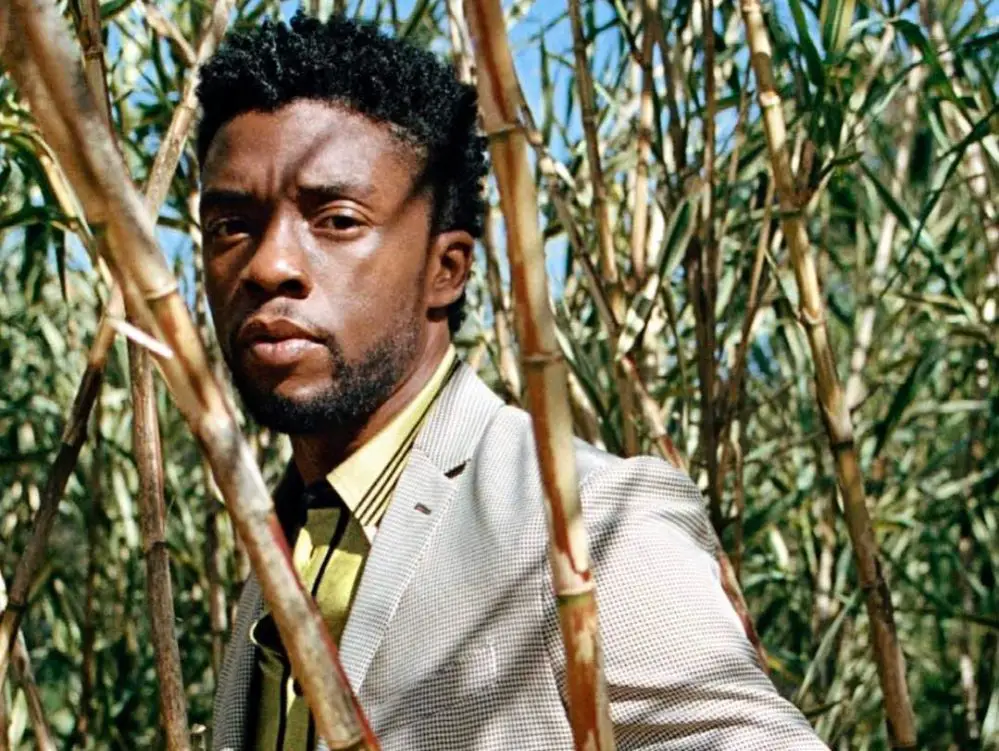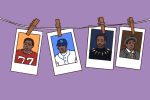Every heart that is feeling the devastation of Chadwick Boseman’s death is weeping, “Wakanda forever.” He was a king in the Black community, a true hero and our champion. While he is most celebrated and remembered for being Black Panther in the Marvel Cinematic Universe, his legacy surpasses being a superhero.
On Aug. 28, the family of Boseman released a statement on his Instagram confirming the actor’s death.
“It is with immeasurable grief that we confirm the passing of Chadwick Boseman,” it read. “Chadwick was diagnosed with stage III colon cancer in 2016, and battled with it these last 4 years as it progressed to stage IV.”
The Instagram caption went on to discuss his perseverance despite his pain and struggles. His family also mentioned his films that fans have grown to love. Almost as if they were trying to give fans closure and peace of mind, they informed us, “It was the honor of his career to bring King T’Challa to life in Black Panther.”
His life on this earth is a true testimony to finding your purpose and living in your truth. One could say he took his own advice from his keynote speech at the Howard University graduation: “Whatever you choose for a career path, remember, the struggles along the way are only meant to shape you for your purpose.”
His career path did just that.
And while we adored him for being our Black Panther, his legacy leaves us with so much to be grateful for.
Throughout Boseman’s career, he took on roles with a purpose. He was a champion in the Black community due to the positive representation he graced us with in his films. He was a vessel for telling Black stories and bringing Black history to life.
Several of Boseman’s movies feature great representations of Black historical figures that have moved mountains for the community. And I must add, one must be a true talent with range to navigate and play Thurgood Marshall, James Brown and Jackie Robinson.
His first biopic was “42: The True Story of an American Legend,” a film about Jackie Robinson. Throughout the film we see Boseman morph into Robinson and completely embody the spirit and passion of the legendary baseball player. His range and skilled acting allowed the story to progress in a way that tells the story of an American legend.
In the film, Boseman delivers the line “God built me to last” in response to his wife reminding him not to let anyone get under his skin.
These words hit differently now that both Boseman and Robinson have passed on. The words represent a piece of both of them, their self-awareness and ability to withstand adversity. And while they may not be here with us on Earth, their legacy and impact were built to last.
Unlike his role in “42,” Boseman’s next biopic showed a hidden talent. His role in the movie “Get On Up” showed us that he’s a triple threat. His soulful range lived on in the James Brown biopic, making it another one of his most iconic performances.
From the singing to the perfect imitation of James Brown’s raspy voice to the dance moves, Boseman nailed another Black historical figure’s story.
In an interview with Indiewire in 2014, Tate Taylor, director of “Get On Up,” spoke fondly of his time with Boseman as he discussed the many different layers that made the film such a hit.
“He let himself go in his performance without any sense that people were watching him. It was unlike anything I’d ever seen. He stayed in character not because that was his method, but because he became James Brown.”
Taylor’s illustration of Boseman reflects the notion of being so engrossed in what you love, the feeling of work subsides.
A major point in the actor’s career was playing T’Challa in the Marvel film “Black Panther.” This wasn’t just a monumental role because it was the first Black superhero film; it was monumental because of representation.
Instead of young Black children seeing themselves in movies and TV shows as the token Black character or the “Black best friend,” they could see themselves with an actual storyline. (The Washington Post defines the “token Black friend” or the “Black best friend” as “the folks who offer emotional support, wise, world-weary counsel and a kick in the pants when needed — often administered with a dash of sass and the occasional finger snap.”
While these token Black friends are meant to add diversity to a production, their identity can feel displaced in an all-white setting. And while the actions mean well, they aren’t beneficial. The great thing about “Black Panther” is that every character had their own identity that progressed the story. His role wasn’t dependent upon another white character in the plot.
“Black Panther” allowed so many children to see themselves as superheroes for two hours straight.
In an interview with Nani Rojas, one of Chadwick Boseman’s many fans, she expressed how significant Boseman was for young Black children.
“I think he was completely influential, especially for Black boys and girls,” she said. “He really broke into big films quick. He really showed that Black people don’t have to play the small or stereotypical roles.”
Rojas also says she feels it was important that he didn’t let anyone know he was sick.
“He didn’t let anyone put him in a box or give him pity. It let him do his job freely and be real with himself. Because when people are sick, other people tend to be nice and not be real, and it doesn’t help when trying to improve yourself.”
She hopes that Chadwick’s legacy teaches people never to keep themselves in boxes.
I interviewed another fan, Daniel Sykes, who has high hopes for Boseman’s legacy.
“I hope what people can take from Mr. Boseman’s legacy is that no matter how challenging life gets, never give up. Even with his personal health challenges, Mr. Boseman continued to excel, leaving us in awe of his unforgettable talents and attributes.”
Although there will never be an opportunity now, Sykes also reflected on what he’d say to Boseman if he had had the chance. And it would start with his “admiration for King T’Challa.”
“As a Black man, I was moved even more as I watched the film; for Mr. Boseman wasn’t just a king in a movie, but in reality he became our king for the culture, allowing for generations to feel and want to be empowered.”
Although Boseman brought great characters to life, his real life was something to celebrate. He was an activist, a leader and a fighter. He represents using your time wisely and living life to the fullest regardless of what is happening.
His will to keep fighting and to be our hero even off screen was quite evident. He lived every moment until his dying breath.
In the four years that he suffered from colon cancer, not the slightest information on his illness was leaked. Cancer did not become his identity; Chadwick Boseman suffered in silence while being our Black Panther.
















